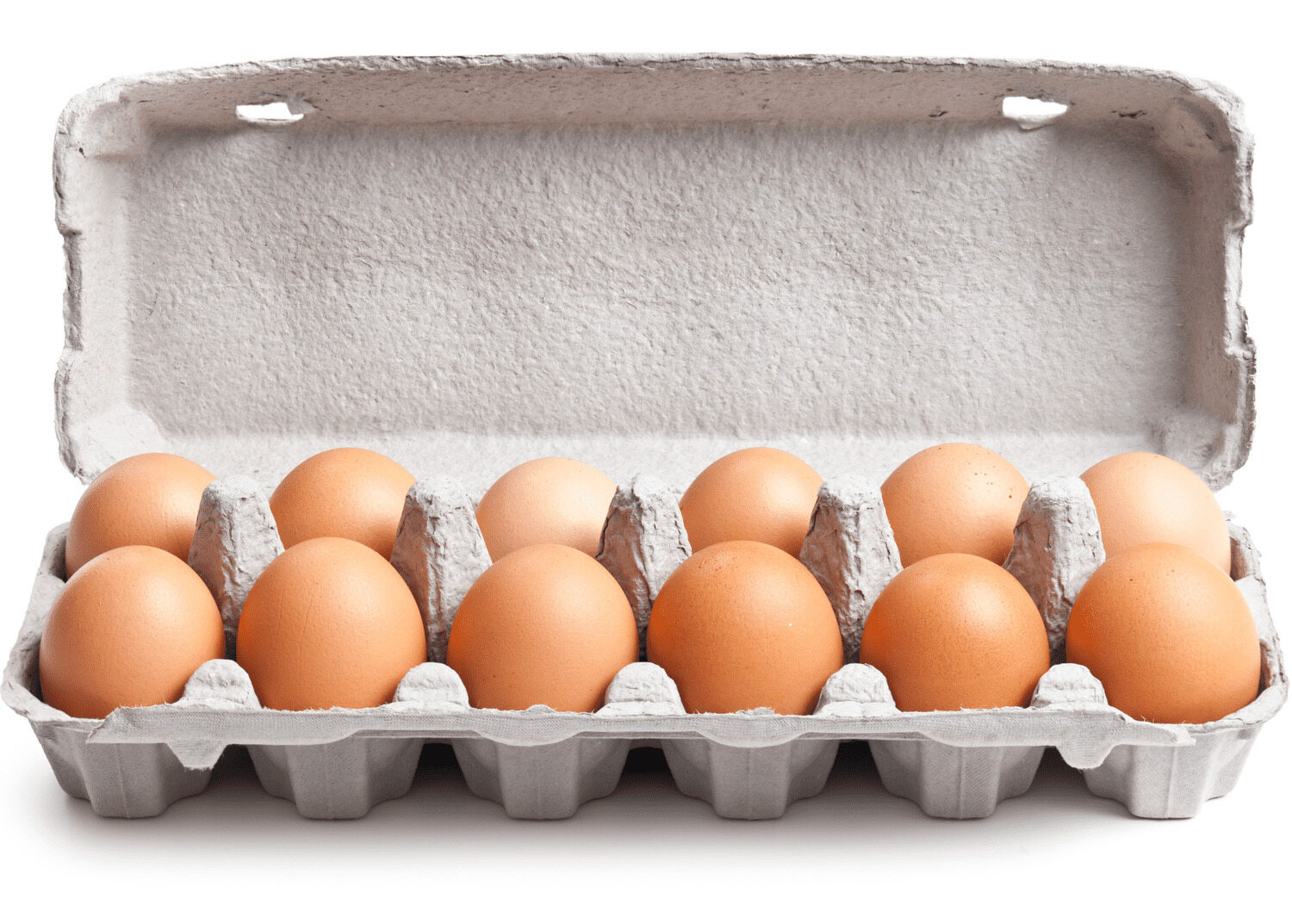

Articles
How To Store Eggs
Modified: April 22, 2024
Learn proper techniques for storing eggs in this informative article. Keep your eggs fresh and safe for longer periods of time.
(Many of the links in this article redirect to a specific reviewed product. Your purchase of these products through affiliate links helps to generate commission for Storables.com, at no extra cost. Learn more)
Introduction
When it comes to cooking and baking, eggs are an essential ingredient that adds richness and structure to a variety of recipes. However, sometimes you may find yourself with a surplus of eggs and wondering how to store them properly to ensure their freshness and quality.
Storing eggs correctly is crucial to maintain their flavor and prevent spoilage. The methods of storing eggs will depend on various factors, including the ambient temperature, humidity levels, and the intended length of storage. Whether you choose to store eggs at room temperature or in the refrigerator, it is essential to follow certain guidelines to ensure their safety and extend their shelf life.
In this article, we will explore the best practices for storing eggs, the necessary factors to consider, and how long eggs can be stored. By following these guidelines, you can enjoy fresh and delicious eggs whenever you are ready to use them.
Key Takeaways:
- Properly storing eggs is crucial for maintaining their freshness and safety. Factors like temperature, humidity, and egg age should be considered when deciding between room temperature and refrigeration.
- Following best practices, such as using original cartons, avoiding temperature fluctuations, and regularly inspecting eggs, can help extend their shelf life. Trust your senses and discard any eggs showing signs of spoilage to ensure food safety.
Read more: How To Store Egg
Factors to Consider Before Storing Eggs
Before deciding on the method of storing eggs, there are several important factors to consider. These factors will help you determine the best storage method for preserving the quality and safety of the eggs.
- Temperature: The temperature at which eggs are stored plays a significant role in their freshness and shelf life. Eggs should be stored at a consistent temperature to prevent fluctuations that can accelerate their deterioration. Both room temperature and refrigerator storage have advantages and disadvantages, which we will discuss further in the next sections.
- Humidity: Humidity levels can affect the eggs’ quality by influencing moisture loss or absorption through the shell. Eggs have a natural protective coating called the cuticle that helps to prevent moisture loss and preserve freshness. Higher humidity levels can help maintain this protective barrier. However, excessive humidity can also promote bacterial growth, so proper balance is crucial.
- Age of the eggs: The age of the eggs is another factor to consider before storing them. Fresh eggs have a lower likelihood of spoiling quickly compared to older eggs. If you acquire eggs from your own chickens or a local source, it is important to know their freshness. Older eggs may have a higher risk of spoilage, so using them within a shorter time frame is recommended.
- External odors: Eggs have permeable shells that can absorb strong odors from their surroundings. It is crucial to store eggs away from strong-smelling foods or substances that could impact their flavor and aroma. Storing eggs in airtight containers or in their original cartons can help minimize odor absorption.
Considering these factors will help you make an informed decision on the best method of storing eggs to preserve their freshness, quality, and safety.
Best Practices for Storing Eggs
Regardless of whether you choose to store eggs at room temperature or in the refrigerator, there are some general best practices that should be followed to ensure their optimal storage conditions.
- Always start with fresh eggs: Fresh eggs generally have a longer shelf life and are less likely to spoil quickly. Check the expiration date on the carton or perform the float test to determine the freshness of the eggs before storing them.
- Handle eggs with care: Eggs are fragile, and rough handling can lead to cracks or damage to the protective shell. Gently place the eggs in the storage container or refrigerator to prevent any mishaps.
- Store eggs in their original cartons: The original egg cartons are designed to provide a stable and protective environment for the eggs. They are typically made from materials that help to regulate moisture levels and prevent odor absorption. Place the egg carton on a shelf in the refrigerator or in a cool, dry place if storing at room temperature.
- Avoid temperature fluctuations: If you choose to store eggs at room temperature, ensure that they are kept in a cool area away from direct sunlight or heat sources. Temperature fluctuations can accelerate the process of spoilage. In the refrigerator, store the eggs in the main compartment, where the temperature is most stable.
- Keep eggs away from strong odors: As mentioned earlier, eggs can absorb strong odors from their surroundings. To preserve their taste and aroma, store eggs away from foods with pungent smells, such as onions or garlic.
- Do not wash eggs before storage: Eggs have a natural protective coating called the cuticle, which helps to seal the shell pores and retain moisture. Washing the eggs can remove this protective layer and make them more susceptible to bacteria. It is best to only wash eggs before use, rather than before storage.
- Rotate your egg supply: To maximize freshness, it is a good practice to rotate your egg supply. Place the newly purchased eggs at the back of the storage container or refrigerator, so the older eggs are used first.
- Check for signs of spoilage: Regularly inspect your stored eggs for any signs of spoilage, such as off odors, cracked shells, or unusual textures. If you notice any of these signs, discard the affected eggs immediately.
Following these best practices will help ensure that your eggs stay fresh, safe, and ready to use whenever you need them.
Storing Eggs at Room Temperature
While refrigeration is the most common and recommended method for storing eggs, it is also possible to store eggs at room temperature under certain conditions.
One important factor to consider when storing eggs at room temperature is the climate and ambient temperature of your surroundings. If you live in a hot and humid environment, it is generally not advisable to store eggs at room temperature, as the risk of bacterial growth and spoilage increases.
However, if you live in a cooler climate or have a consistently cool room in your home, storing eggs on the countertop can be an option. Here are some guidelines to follow:
- Choose fresh eggs: When storing eggs at room temperature, it is crucial to start with the freshest possible eggs. Fresh eggs have less risk of spoilage and can better withstand room temperature storage.
- Keep eggs in a cool and dry place: Find a spot away from direct sunlight, heat sources, and areas with high humidity. Ideally, the temperature should be around 20-25 degrees Celsius (68-77 degrees Fahrenheit).
- Use an egg tray or holder: To keep eggs stable and prevent rolling or collisions, use an egg tray or holder specifically designed for this purpose. These holders help protect the eggs and maintain their shape.
- Do not wash eggs before storage: Washing eggs removes the natural protective coating called the cuticle. Only wash eggs just before using them, and avoid washing eggs intended for room temperature storage.
- Rotate frequently: Eggs stored at room temperature should be used within a shorter timeframe compared to refrigerated eggs. Make sure to rotate your stock regularly, using the older eggs first.
It is important to note that room temperature storage is generally not recommended for commercial eggs, as they have gone through various processes and treatments that may compromise their safety. It is always best to check the label and follow the guidelines provided by manufacturers.
Remember to exercise caution and use your discretion when storing eggs at room temperature. Regularly inspect and smell the eggs to ensure they are still fresh and safe to consume. If in doubt, it is best to err on the side of caution and refrigerate the eggs.
Store eggs in their original carton in the coldest part of the refrigerator, not in the door. This helps maintain their freshness and prevents them from absorbing strong odors from other foods.
Storing Eggs in the Refrigerator
Refrigeration is the most common and recommended method for storing eggs, as it helps to maintain their freshness and extend their shelf life. Here are some guidelines for storing eggs in the refrigerator:
- Keep eggs in their original carton: The original egg carton provides a protective barrier for the eggs, shielding them from temperature fluctuations and odors. Place the carton on a shelf in the main compartment of the refrigerator, not on the fridge door, which can experience more temperature variations.
- Check the expiration date: While refrigeration helps to prolong the shelf life of eggs, it is still important to check the expiration date on the carton. Use older eggs first to ensure they are utilized before they spoil.
- Avoid cross-contamination: To prevent cross-contamination and the spread of bacteria, it is vital to store eggs away from other foods, especially those that are consumed raw or partially cooked, such as meat, poultry, and seafood. Keep eggs in a separate compartment or dedicate a specific area for their storage.
- Do not wash eggs before storage: Similar to storing eggs at room temperature, it is best not to wash eggs before refrigeration. Washing can remove the protective cuticle and increase the risk of bacteria infiltration through the shell pores.
- Keep a constant temperature: Set the refrigerator temperature between 35-40 degrees Fahrenheit (1-4 degrees Celsius) for optimal egg storage. Avoid frequent temperature fluctuations by not opening the refrigerator door unnecessarily.
- Separate cracked or damaged eggs: If any eggs in the carton are cracked or damaged, it is essential to separate them from the rest. Cracked eggs can spoil more quickly and contaminate the other eggs, so they should be used immediately or discarded.
- Store eggs with the pointed end down: Eggs have an air cell at the broader end, and storing them with the pointed end down can help maintain freshness by keeping the air cell centered and minimizing movement of the yolk within the egg.
- Avoid storing eggs in the egg tray on the door: While the egg tray on the refrigerator door is convenient, it is subject to temperature fluctuations due to the frequent opening and closing of the door. Choose a stable shelf in the main compartment instead.
By following these guidelines, you can safely and effectively store your eggs in the refrigerator, ensuring they remain fresh and ready to use.
Read more: How To Store Egg Salad
How Long Can Eggs Be Stored
The shelf life of eggs can vary depending on the storage method and the freshness of the eggs at the time of purchase. Here are some general guidelines for how long eggs can be stored:
- Room temperature: Eggs stored at room temperature should be used within a shorter timeframe compared to refrigerated eggs. Generally, eggs stored at room temperature can be safely consumed for up to 2 weeks.
- Refrigeration: When stored in the refrigerator at temperatures between 35-40 degrees Fahrenheit (1-4 degrees Celsius), fresh eggs can typically be consumed within 4-5 weeks of purchase. However, it is important to regularly check the expiration date on the egg carton and use older eggs first.
- Hard-boiled eggs: Hard-boiled eggs have a shorter shelf life than raw eggs. When properly peeled and stored in the refrigerator, hard-boiled eggs can be consumed within 1 week.
It is worth mentioning that these are general guidelines and that individual egg freshness, storage conditions, and other factors may impact the shelf life. To ensure the safety and quality of the eggs, it is crucial to perform visual and smell checks before using them.
If you are unsure about the freshness of an egg, perform the float test. Fill a bowl with water and gently place the egg in it. Fresh eggs will sink and lay flat on the bottom, while older eggs will float or stand upright. Floating eggs should be discarded as they have likely spoiled.
Always trust your senses. If an egg has an off smell or appears discolored or slimy, it is best to discard it to avoid any potential foodborne illnesses.
It’s also important to note that these guidelines are for chicken eggs. Different types of eggs, such as duck or quail eggs, may have different storage requirements and shelf lives.
By following these recommendations and being mindful of the freshness and storage conditions, you can enjoy eggs that are both safe and delicious for a longer period of time.
Signs of Spoiled Eggs
Recognizing the signs of spoiled eggs is crucial to ensure food safety and prevent any potential illnesses. Here are some common signs that indicate eggs have gone bad:
- Foul odor: One of the most obvious signs of a spoiled egg is a strong, unpleasant odor. Fresh eggs have a neutral scent, while spoiled eggs may emit a sulfuric or rotten smell. If you detect a pungent or off-putting odor when cracking an egg, it is best to discard it.
- Change in appearance: Spoiled eggs may have noticeable changes in their appearance. Look for any cracks or leaks in the shell, as this might indicate bacterial contamination. Additionally, the egg white and yolk may appear discolored, with a darker or greenish hue. Fresh eggs have a clear and vibrant appearance, while spoiled eggs can have cloudy or unusual textures.
- Unusual texture: When cracked open, fresh eggs have a smooth and thick consistency. Spoiled eggs may have a slimy or watery texture. The egg white might appear runny and the yolk may break easily or have an altered texture. These changes in texture can indicate spoilage.
- Unpleasant taste: A spoiled egg may have a distinct and unpleasant taste. If you notice a bitter or off-tasting flavor when eating or cooking with eggs, it is a clear indication that they have gone bad. Trust your taste buds and refrain from consuming eggs with an unusual taste.
- Gas production: Over time, spoiled eggs can produce gas as a result of bacterial growth. If you notice any bubbles or air pockets when cracking an egg, it is a sign of spoilage. Discard the egg immediately to avoid any potential health risks.
It is essential to be cautious when handling eggs and always inspect them before consumption. Keep in mind that proper storage conditions and regular checks can help prevent spoilage and ensure the safety of the eggs.
If you suspect that an egg might be spoiled or unsafe to eat, it is always better to err on the side of caution and throw it away. Consuming spoiled eggs can lead to food poisoning and other health complications, so it’s better to be safe than sorry.
By knowing the signs of spoiled eggs, you can make informed decisions and maintain the quality and safety of the eggs you use in your cooking and baking.
Conclusion
Properly storing eggs is essential to maintain their freshness, quality, and safety. Whether you choose to store eggs at room temperature or in the refrigerator, following the recommended guidelines will help ensure that your eggs stay fresh and ready to use.
Factors such as temperature, humidity, egg age, and protection from external odors should be taken into consideration when deciding on the ideal storage method. Storing eggs at room temperature is suitable for certain climates and under specific conditions, while refrigeration is the most common and recommended method for most households.
Best practices for storing eggs include always starting with fresh eggs, handling them with care, using their original cartons, avoiding temperature fluctuations and strong odors, and not washing eggs before storage. Regularly inspecting and rotating your egg supply are also important to maintain freshness.
Eggs can be stored at room temperature for up to two weeks, while refrigerated eggs can usually stay fresh for four to five weeks. It is crucial to check the expiration date and perform the float test to determine the freshness of eggs before use. Trust your senses and discard any eggs that exhibit signs of spoilage such as a foul odor, changes in appearance or texture, unpleasant taste, or gas production.
By understanding and implementing these guidelines, you can store eggs properly and enjoy their deliciousness in your favorite recipes, while minimizing the risk of foodborne illnesses.
Remember, when it comes to eggs, freshness is key. With the right storage practices, you can continue to enjoy the versatility and nutritional benefits of eggs for an extended period, ensuring that every dish you create is as delicious as it can be.
Frequently Asked Questions about How To Store Eggs
Was this page helpful?
At Storables.com, we guarantee accurate and reliable information. Our content, validated by Expert Board Contributors, is crafted following stringent Editorial Policies. We're committed to providing you with well-researched, expert-backed insights for all your informational needs.
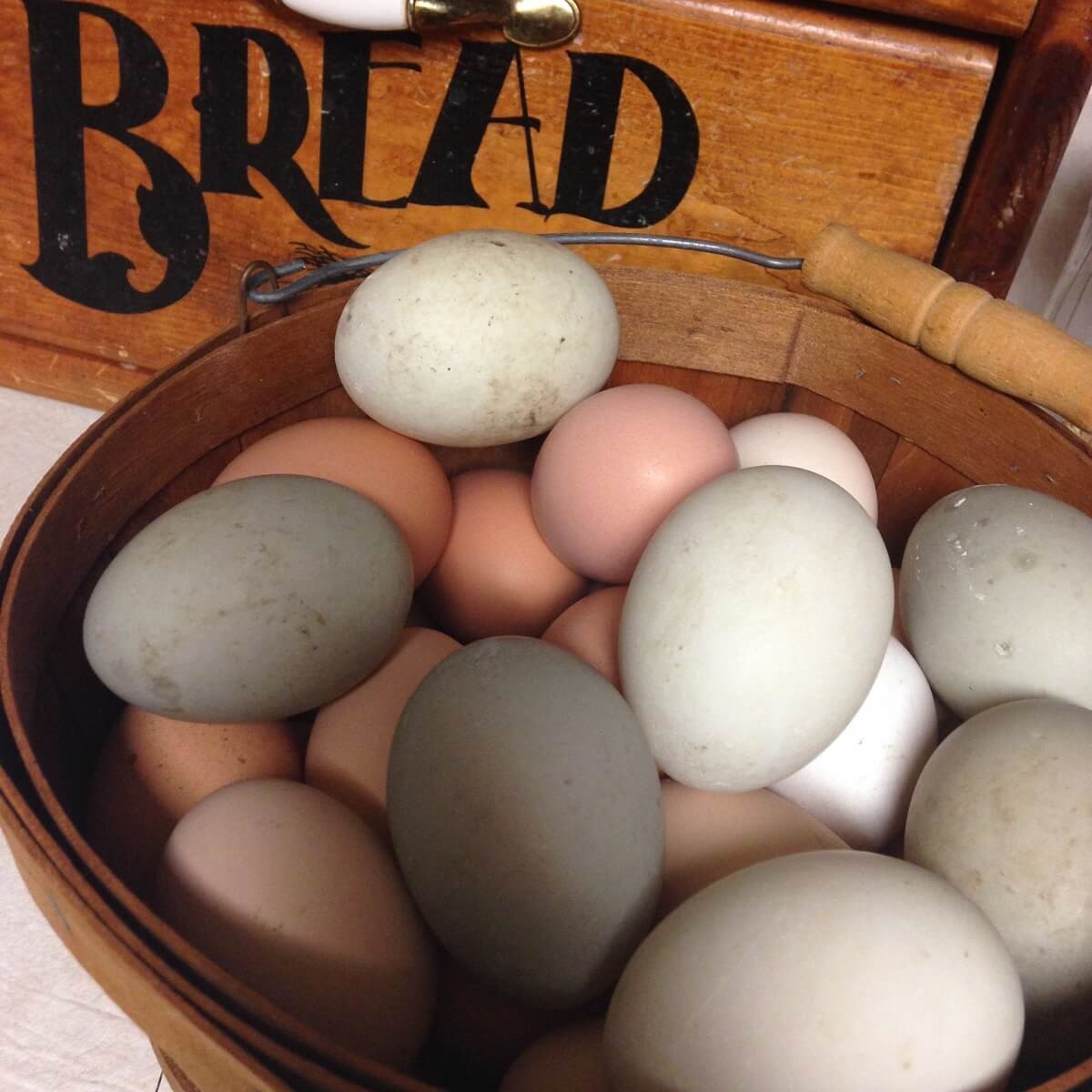

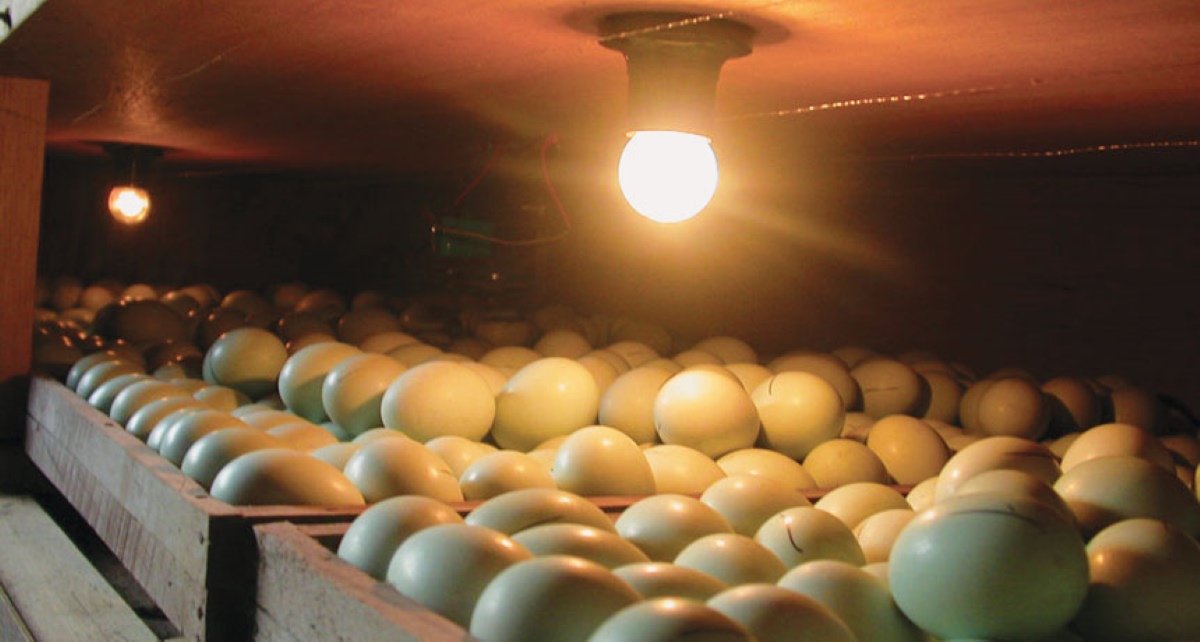
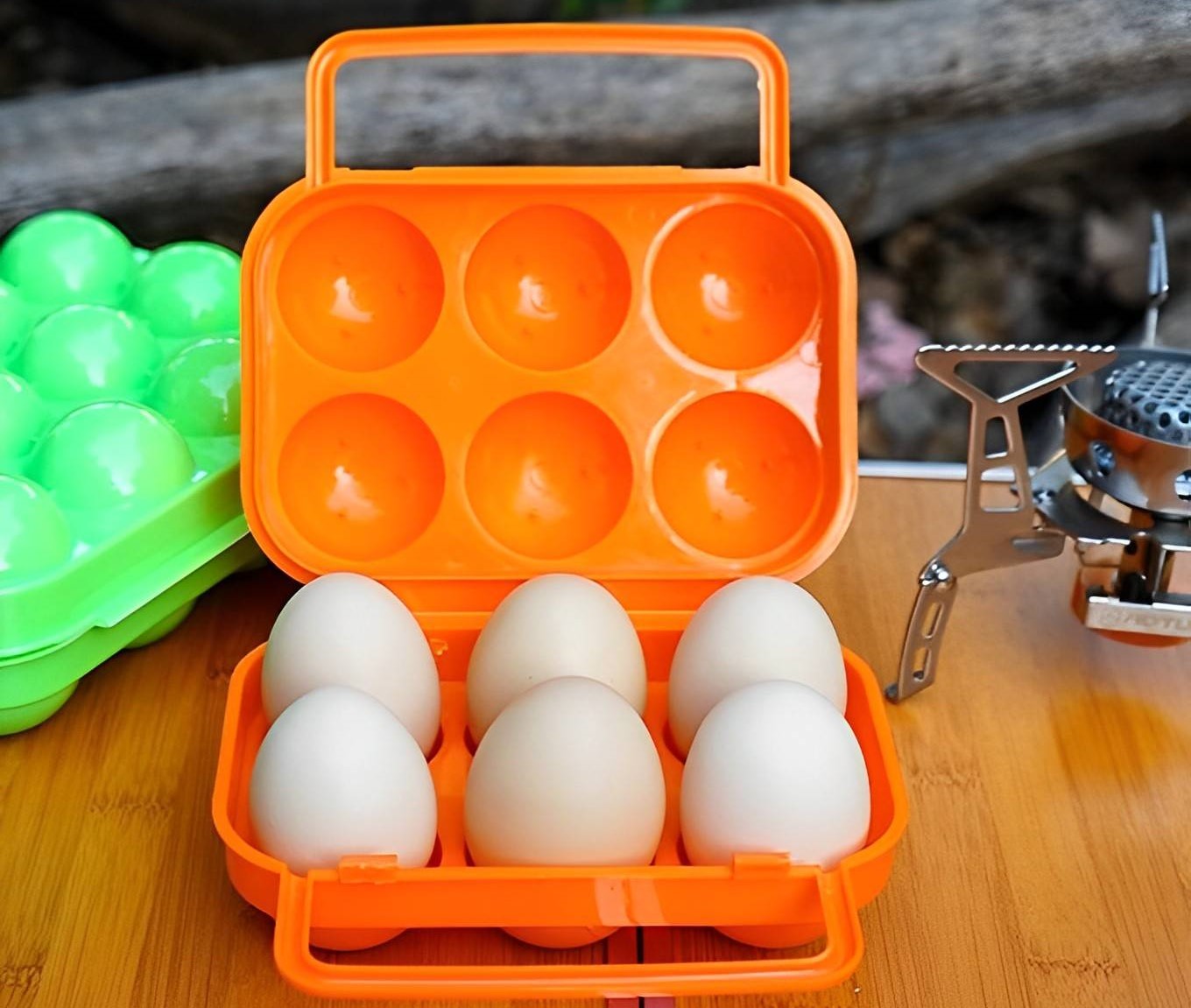







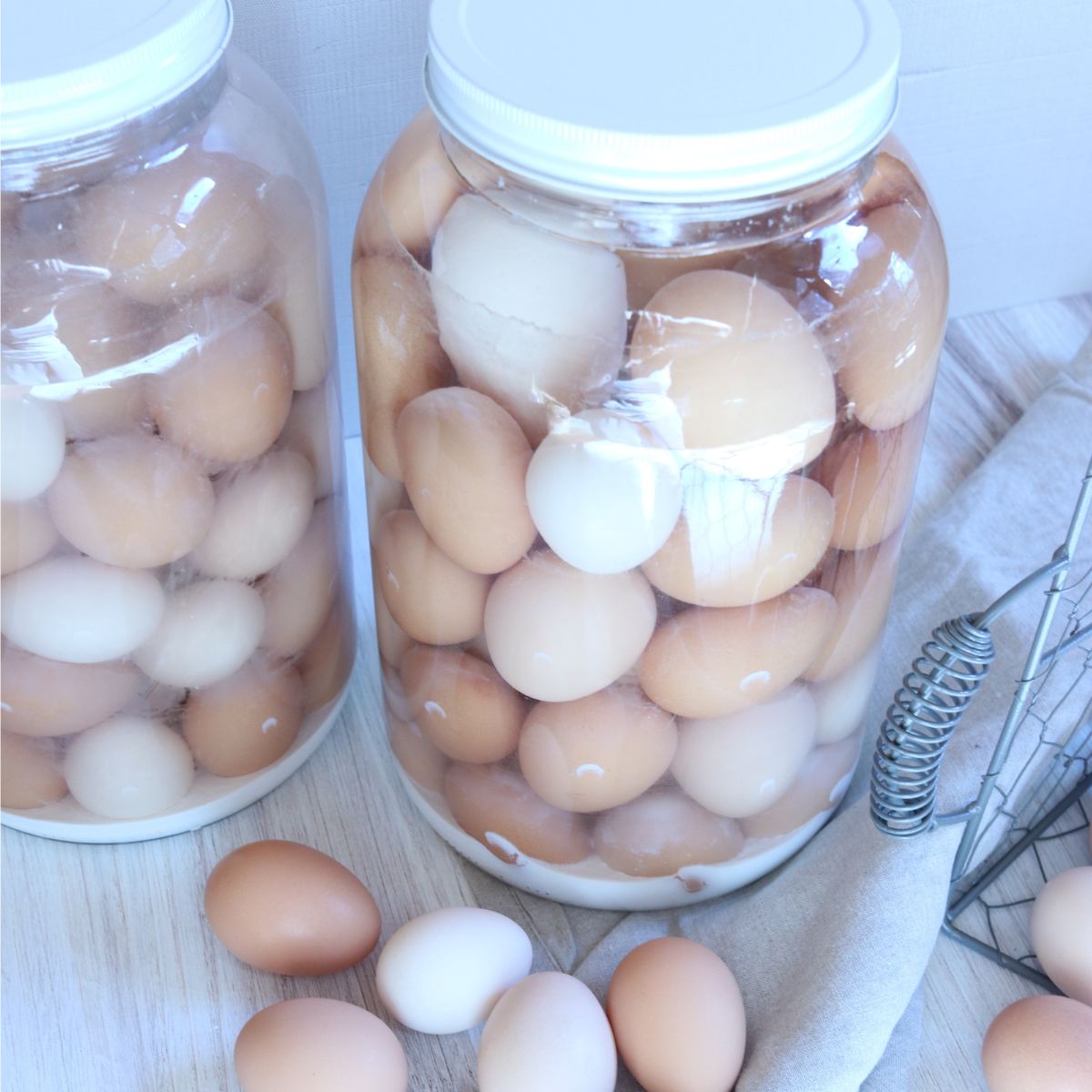



0 thoughts on “How To Store Eggs”